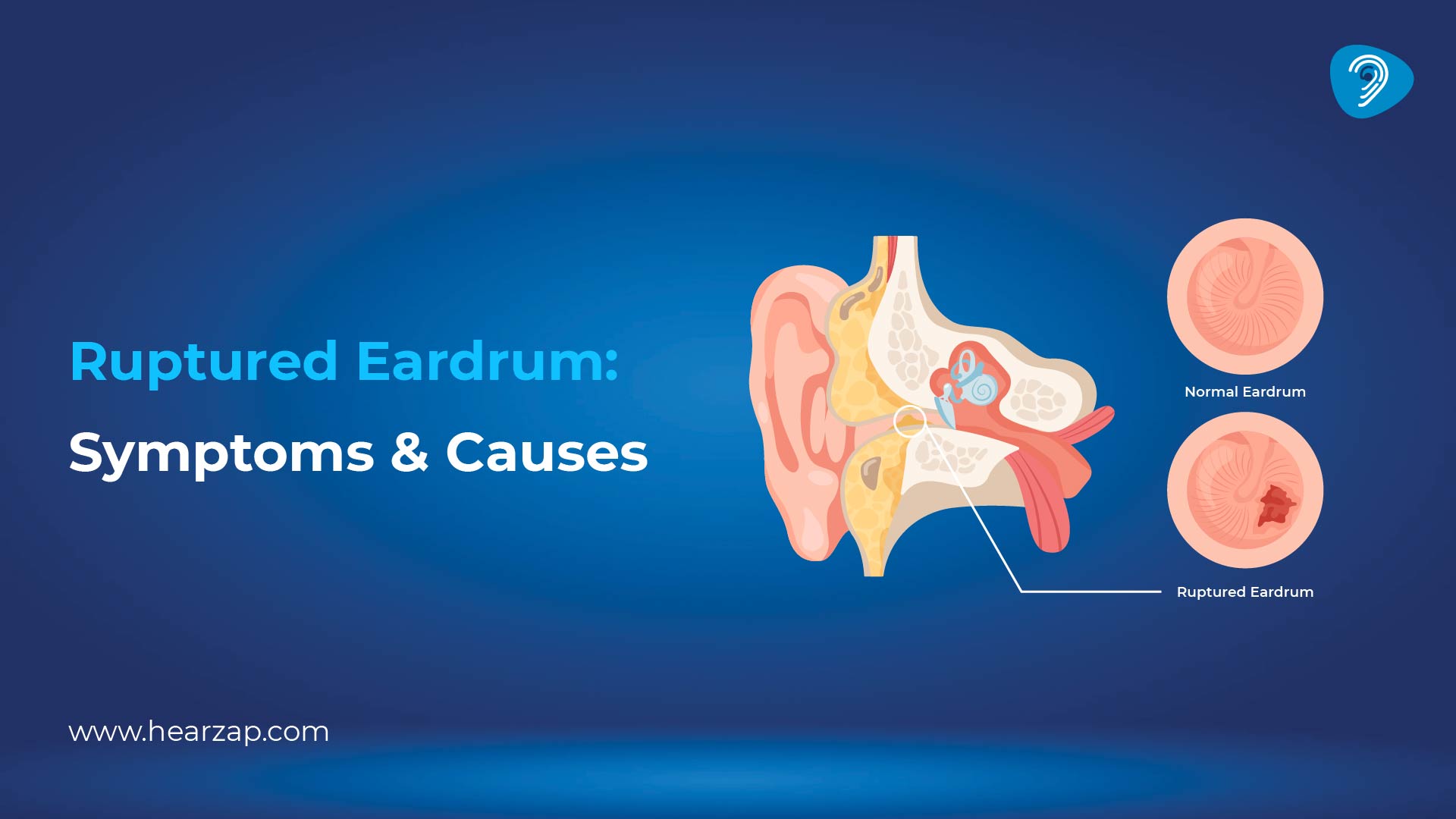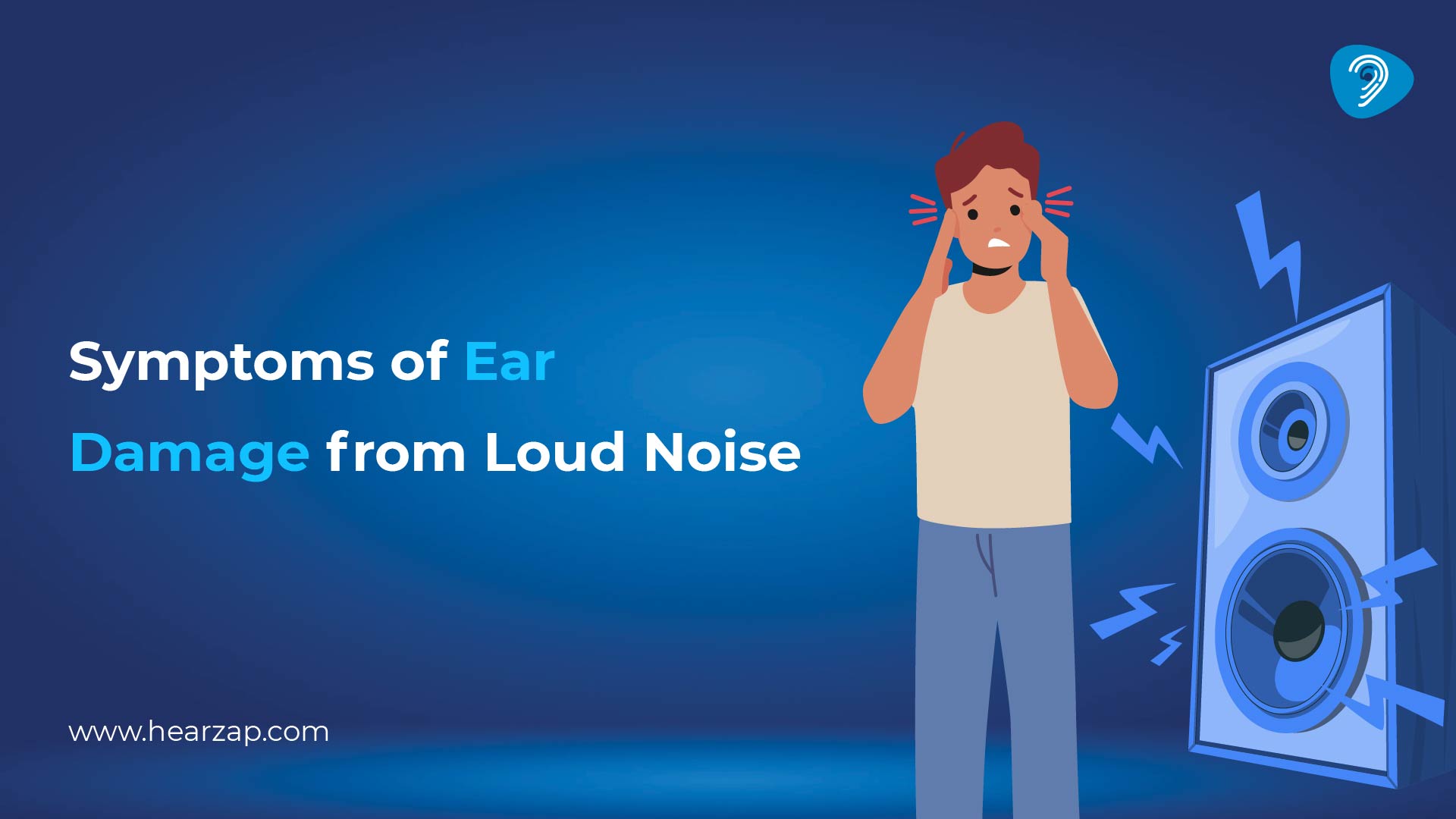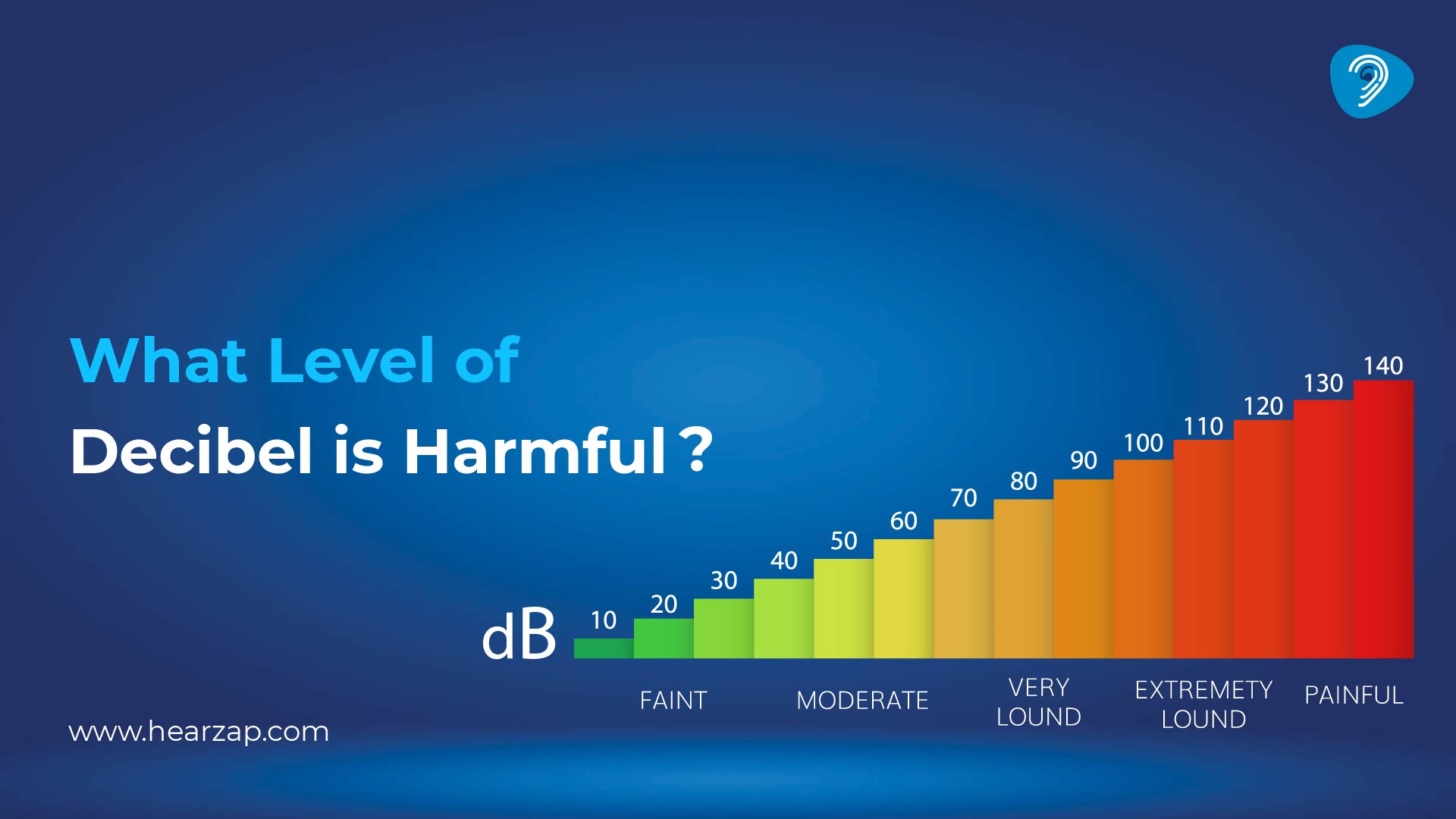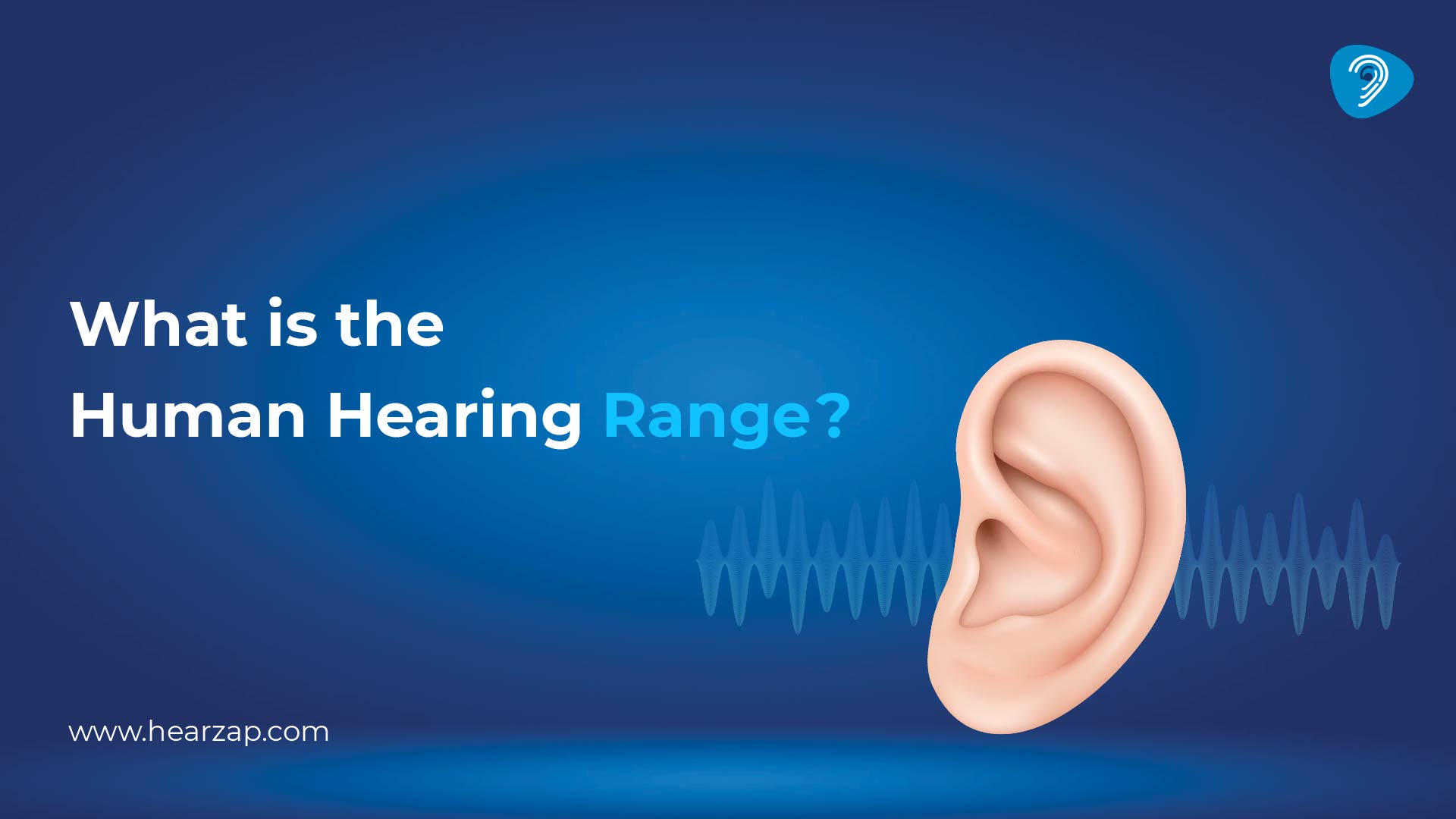Generic
Ruptured Eardrum: Symptoms & Causes
By Team Hearzap | May 31, 2025

Have you ever felt a sudden sharp pain in your ear, followed by a strange sensation of relief or even a sudden loss of hearing? If yes, you might be wondering if you’ve experienced a ruptured eardrum. It can be serious, but understanding what’s going on inside your ear is the first step toward healing. A ruptured eardrum, also known as a perforated eardrum, occurs when there’s a tear or hole in the thin tissue separating your ear canal from your middle ear. It can cause discomfort, temporary hearing loss, and even infections but with the right care, it usually heals on its own or with minimal intervention. Let’s walk through the common ruptured eardrum symptoms, explore what causes it, and answer the question on your mind—can you hear with a ruptured eardrum?
How to Know if Your Eardrum Is Ruptured
So, how to know if your eardrum is ruptured? The signs can sometimes be subtle or they can come on suddenly. Either way, here’s what you need to watch out for:
Common Perforated Eardrum Symptoms:
- Sudden sharp ear pain that may quickly subside
- Clear, bloody, or pus-filled discharge from your ear
- Partial hearing loss in the affected ear
- Buzzing or ringing in the ear (tinnitus)
- Vertigo or dizziness
- Feeling of fullness in the ear
- Occasional nausea due to balance issues
If you've had an ear infection, experienced trauma, or recently flown or scuba-dived, and are now experiencing these symptoms — your eardrum could be the culprit.
Is a Ruptured Eardrum Painful?
Yes, it usually is. If you’re asking, “is a ruptured eardrum painful?”, the answer is very likely yes, at least in the beginning. Many people describe a sudden stabbing pain, sometimes followed by a popping sound. After the tear has occurred, pain usually diminishes, while other symptoms such as discharge, pressure, or hearing difficulty may follow. If the pain continues for days or gets worse, it is advisable to seek medical attention. While most of the ruptures heal spontaneously, continuous pain may be indicative of the presence of infection or other complications.
Can You Hear With a Ruptured Eardrum?
The most frequently asked question is if you can hear with a ruptured eardrum. The answer is, yes, partially. One may experience muffled, diminished hearing in the affected ear, while mostly complete deafness rarely occurs. It depends on the size and location of the tear. Many times, people do not realize their eardrums are ruptured until they start to feel a difference in hearing or notice some fluid oozing out of their ears. The good news? Most of the time, after your eardrum heals, your hearing will return to normal.
What Causes a Ruptured Eardrum?
It can be one of many day to day situations that cause an eardrum perforation to form. Knowing the causes can help you to avoid such damage in the future.
Common Causes of Eardrum Rupture:
- Ear Infections
Fluid buildup from middle ear infections increases pressure until the eardrum bursts. - Loud Noises or Explosions (Acoustic Trauma)
A sudden, intense noise (like fireworks or gunshots) can cause the eardrum to tear. - Sudden Pressure Changes (Barotrauma)
Scuba diving, flying, or driving in high altitudes without proper pressure equalization can stress the eardrum. - Foreign Objects in the Ear
Using cotton swabs, pins, or even fingernails to clean your ear can puncture the delicate tissue. - Head or Ear Injury
A direct blow to the head or side of the face can rupture the eardrum, especially during contact sports or accidents.
What to Do If You Suspect a Ruptured Eardrum
If you’re experiencing the symptoms above, don’t poke, prod, or pour anything into your ear — not even water. Seek medical advice as soon as possible.
Here’s what a doctor might do:
- Perform a physical examination using an otoscope
- Order a hearing test if needed
- Prescribe antibiotic drops (especially if infection is suspected)
- Recommend pain relievers
In rare cases, where the eardrum doesn’t heal on its own in a few weeks, a surgical patch or a minor tympanoplasty may be needed.
Conclusion
A ruptured eardrum can feel alarming, especially if you’re unsure what’s happening. But the condition is more common than you might think, and in most cases, it heals naturally with the right care. Stay alert to ruptured eardrum symptoms, avoid inserting objects into your ears, and protect your ears during loud events and pressure changes. If you're ever unsure how to know if your eardrum is ruptured, don’t guess just consult an audiologist. Because when it comes to your ears, a little attention can go a long way in preserving your hearing and comfort.
Also Read: Ear Infections: Causes, Symptoms & Treatment
Middle Ear Infections (Otitis Media)
FAQs
1. What side should I sleep on with a ruptured eardrum?
The sleeping position with a ruptured ear is to avoid lying on the injured side to decrease the pain and pressure. Sleeping other than the affected side may prevent the risk of infection.
2. Can a ruptured eardrum heal?
Yes, most of the ruptured eardrums get healed within a few weeks without any medications. However, in some severe cases may require a antibiotics or surgical treatment.
3. How long will a ruptured eardrum leak?
The leakage from a ruptured eardrum may typically take a few days to a week. If it is continues for more than a week, then you need a medical attention to cure the infection.
4. Can you hear with a ruptured eardrum?
Yes, we can hear with a ruptured eardrum, but hearing may be reduced or muffled in the affected ear depending on the size and location of the tear. The hearing becomes normal after healing.
5. What is a ruptured eardrum?
The ruptured eardrum is a hole or a tear in the thin membrane separating the outer ear from the middle ear. It may cause infection, trauma, or sudden pressure changes.
Contact us
We are here for all your hearing needs, from hearing tests to hearing aids. Fill out the form below, and we will give you a call soon.
Please enter a valid mobile number with 10 digits.
Recent Blogs
By None | Feb. 25, 2026
By None | Feb. 20, 2026
By None | Feb. 16, 2026
By None | Feb. 9, 2026
By None | Feb. 7, 2026













